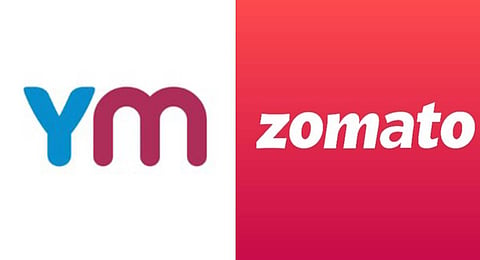

CHENNAI: Shock advertising has always been a thing. Whether through titillation or provocation, brands as well as individuals aspiring to have brand-like identities and recognisability have utilised various staged and paid means to capture attention.
The controversy that may occur is a chosen risk, and sometimes beneficial - sometimes it backfires. Lately, in lieu of advertising, strategic social media posts intended to garner online engagement and free publicity have been the medium of choice.
Recently, two Indian companies had information released online regarding employment practices that caused public dismay - and discussion.
Last month, food delivery aggregator Zomato posted a hiring notice for a person willing to pay the company 20 lakhs and work for no salary for a year, for the possibility of huge financial reward later. This was debated widely, with many wondering if it was all just an eyeball-grabbing promotion, not a real job listing.
This week, a home salon services company named YesMadam entered the limelight after a post appeared on LinkedIn, leaking what seemed to be an internal email telling 100 employees they were fired, following a stress survey by HR. The screenshot contained the unmistakable line: “we have made the difficult decision to part ways with employees who indicated significant stress”.
Within a day, thanks to very well-deserved public outrage, the start-up was forced to publish a lengthy statement claiming that no one was fired, and that employees who were stressed were “…given a break to reset; encouraged to release their stress; offered a chance to relax; and urged to rest and recharge".
They also claimed the social media post that had invited a great deal of online ire was “a planned effort to highlight the serious issue of workplace stress, and that they have a new “de-stress leave” policy.
Whether or not YesMadam intended to just do some profile-raising, severely miscalculating public response during their strategising, or are just scrambling now to cover up unethical employment practices by claiming it was all a stunt, one thing is clear: stupidity was involved. The public image of the company has been tainted by this exercise.
When it came to the Zomato controversy, plenty of privileged people still seem to think it was an interesting approach, and it remains a discussion topic that keeps the company’s name on many lips and at many fingertips. The YesMadam controversy, however, hasn’t brought enough mixed responses in order to elicit debate. Instead, the fiasco sends a number of signals to corporate India, start-ups and organisations of all sizes and capacities.
It is increasingly clear that more people in India are realising that productivity in service of an employer to whom one is dispensable is not worth it.
Statements like “I don’t believe in work-life balance” from Infosys co-founder Narayana Murthy, who encourages 70-hour work weeks, are no longer being admired. Burnout is understood as being real. Employees are more knowledgeable about their rights.
The tables are far from fully turning on exploitative labour practices (not even at desk jobs, let alone amongst the working class), but conversationally at least, concepts like exploitation, fairness, and accountability are far more pervasive in India today.